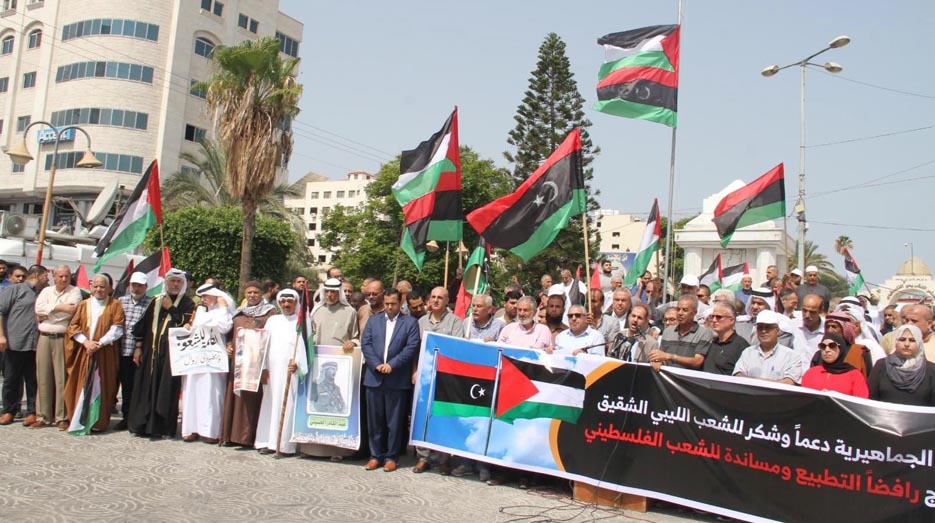
THE US Treasury Department has announced new sanctions targeting seven individuals and entities linked to the Lebanese resistance movement Hezbollah.
The new sanctions target Hezbollah’s revenue-generating ‘operatives and financiers’ in South America and Lebanon, the US Department of Treasury’s Office of Foreign Assets Control (OFAC) said in a press release on Tuesday.
‘Today’s action underscores the US government’s commitment to pursuing Hezbollah operatives and financiers no matter their location,’ Brian Nelson, Treasury’s under-secretary for terrorism and financial intelligence, claimed in a statement.
‘We will continue to root out those who seek to abuse the US and international financial system to fund and engage in terrorism,’ Nelson added.
Hezbollah’s leader Hassan Nasrallah, says Washington made several offers to neutralise the Lebanese resistance movement but to no avail.
Founded in 1982, Hezbollah has been engaged in a determined effort aimed at protecting Lebanon against plots that are hatched by the United States and the Israeli regime, which the resistance group considers to be behind almost all instances of instability and deadly violence in the region.
Hezbollah’s success in defending Lebanon’s sovereignty and territorial integrity has won it a deep-rooted foundation and popularity across the country’s military and political spheres.
Hezbollah has also been engaged in the fight against Takfiri terrorists. By battling the foreign-backed anti-Damascus militants in Syria, Hezbollah contributed to regional stability.
- The Lebanese Hezbollah resistance movement has strongly condemned Bahrain’s ruling Al Khalifah regime over allowing Israel to officially open its embassy in the Persian Gulf kingdom despite widespread protests.
In a Tuesday statement, Hezbollah said Bahrain’s ruling regime is in a ‘political and moral decline’ as it pushes for normalisation with the Israeli enemy after ‘years of oppressing the Bahraini nation, who hold opposing beliefs and have long been demanding freedom as well as justice’.
‘This ominous betrayal constitutes a blow to Palestinian people, who are currently engaged in epic battles and heroic operations in the face of Zionists’ blind terrorism,’ it added.
The resistance movement underscored that the Bahraini nation as well as all peoples of the Muslim Ummah roundly reject normalisation and establishment of ties with Israel, reiterating that ‘the Zionists can’t have a safe place in the region’.
Israel has officially opened its embassy in Bahrain, despite widespread protests by the Bahraini people against the move. On Monday, Israeli foreign minister Eli Cohen attended an official ceremony to open the diplomatic mission during a visit to the Bahraini capital of Manama, which included a delegation of businessmen and regime officials.
The ceremony was attended by Bahraini Foreign Minister Abdullatif al-Zayani, who said the ‘new embassy assumes a pivotal role’ in growing collaboration between the two sides.
Cohen and his Bahraini counterpart discussed ways to expand cooperation in trade, investment, technological exchange, training, and tourism, according to the Bahrain News Agency.
The embassy in Manama will replace the first mission Israel opened in 2021, a year after establishing diplomatic relations with Bahrain and the United Arab Emirates as part of the United States-brokered Abraham Accords.
Sudan and Morocco followed suit later in the year 2021 and inked similar deals.
The move sparked widespread condemnations from the Palestinians as well as nations and human rights advocates across the globe, especially within the Muslim world.
Palestinians say the deals are a treacherous ‘stab in the back’ and a betrayal of their cause against the decades-long Israeli occupation.
- Tunisian President Kais Saied says his country will never normalise relations with Israel as the term does not even exist in Tunisia’s lexicon.
Addressing new Tunisian ambassadors to Arab and non-Arab countries on Tuesday, Saied reiterated that Palestine must return to the Palestinians.
‘Although the Palestinian state has ambassadors … Do not forget the Palestinian right; the legitimate right. The Palestinian issue is the central issue of the whole nation, and to those who talk about normalisation, I say that this term does not exist at all,’ he said.
Saeid added that Palestinians must regain their rights throughout the occupied territories, and that an independent sovereign Palestinian state with al-Quds as its capital must be established.
Earlier this month, the President of the Algerian National Construction Movement, Abdelkader Bengrina, warned that Algiers should ‘keep a watchful eye’ on Tunis.
This comes after several visits were made to the country by Israeli officials that came in line with normalisation efforts.
Earlier on Tuesday, Algerian Foreign Minister Ahmed Attaf pointed out that the Tunisian envoy to Algeria had categorically refuted any normalisation step by Tunisian authorities.
According to the Tunisian parliament, the Committee on Rights and Freedoms had already started looking into introducing a draft law, urging the criminalisation of normalisation with Israel.
The Committee presented: ‘A preliminary reading regarding the importance of the draft law for the Tunisian people and its unconditional support for the just Palestinian cause.’
Meanwhile, dozens of Tunisian lawyers have denounced the Tel Aviv regime’s acts of aggression against the Palestinians.
In June 2022, the Tunisian Foreign Ministry refuted reports about back-channel diplomatic talks between the North African country and Israel, describing them as false.
The ministry in a statement said some websites affiliated with the Israeli regime have been spreading these rumours in an attempt to harm the image of Tunisia and its unyielding pro-Palestine position.
The statement declared that Tunisia was not interested in establishing diplomatic relations with Israel, stressing that the country –on the official and popular level and as stated by President Saied – will always support the Palestinian people in their struggle until their legitimate rights are restored, foremost of which is the establishment of an independent Palestinian state with al-Quds as its capital.
Under the so-called Abraham Accords, the United Arab Emirates, Bahrain, Sudan, and Morocco signed US-brokered normalisation deals with the Israeli regime in late 2020.
Palestinians have denounced the deals as a ‘betrayal’ of their cause.